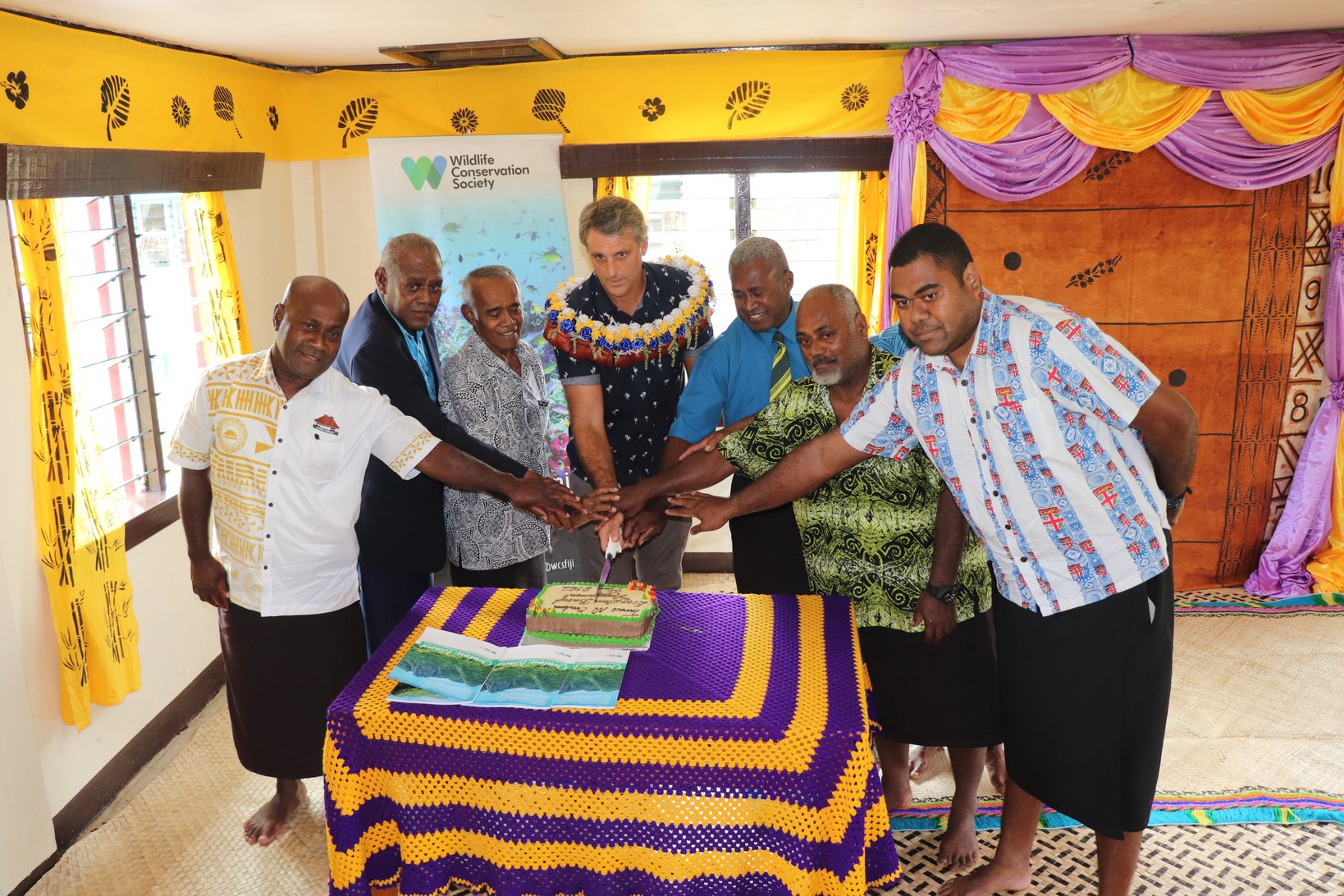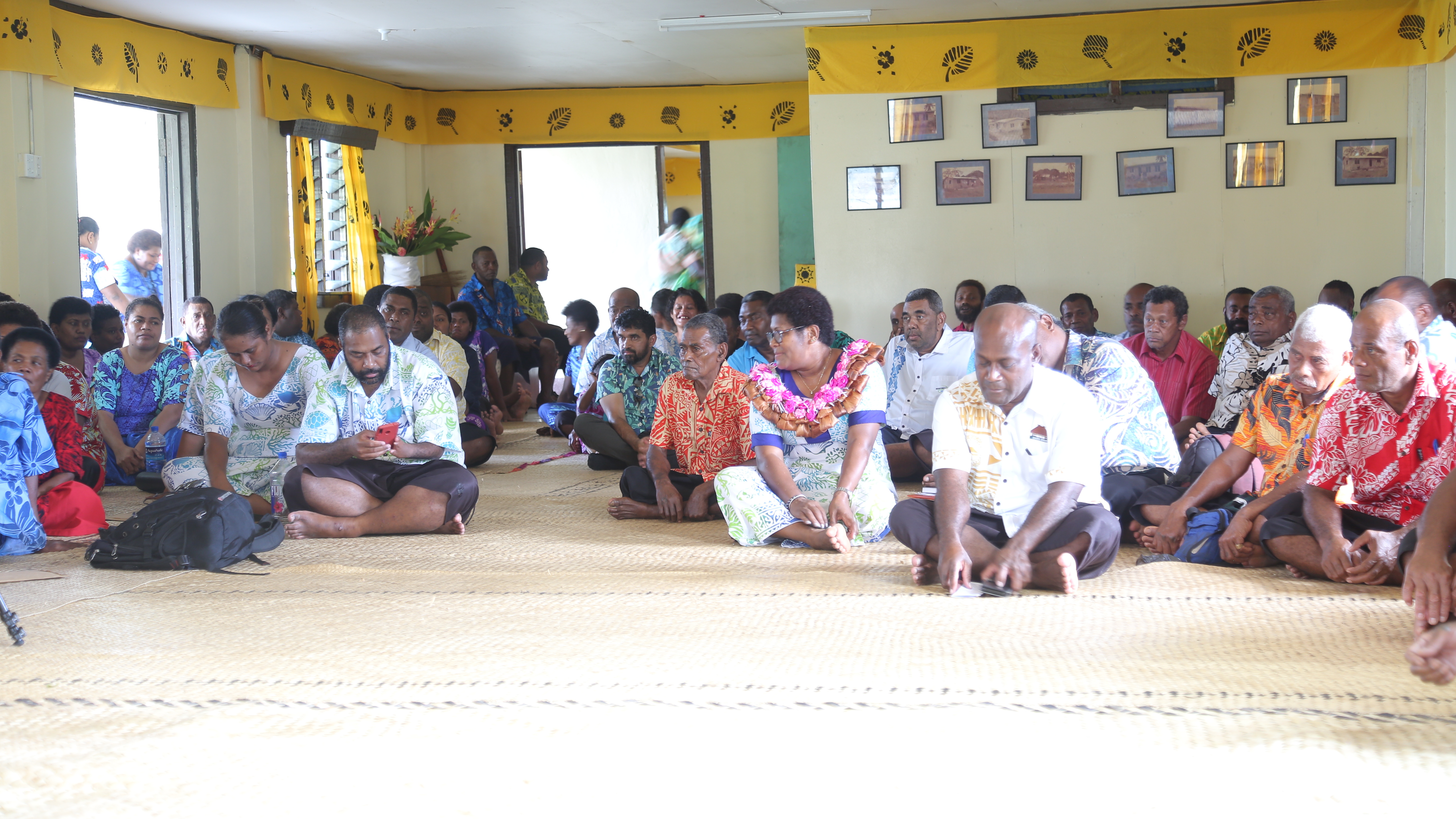With support from WCS, an entire island, with a population of about 9,000, has come together to commit to an integrated approach of natural resource management where the cumulative impact of human activities will be managed with the aim of balancing sustainable development with biodiversity protection.
After witnessing multiple factors contributing to the depletion of natural resources and increasing impacts of climate change, local communities are taking ownership of their actions to control how it affects the ecosystems that they depend on for their livelihoods.
All of the 25 villages on the island of Ovalau, including the town of Levuka, the UNESCO World Heritage Site for Fiji, have today committed to managing their terrestrial, freshwater, coastal and marine ecosystems sustainably.
While launching an island-scale Ecosystem-based Management (EBM) plan, the four paramount chiefs of the island reinforced their commitment to supporting actions that help ecosystems that provide for their needs, build resilience, and be able to continue providing for the needs of their future generations.
 The traditional leaders acknowledged the work of the Wildlife Conservation Society (WCS) with their communities to support them with livelihood projects as well as in maintaining healthy, productive, and resilient ecosystems.
The traditional leaders acknowledged the work of the Wildlife Conservation Society (WCS) with their communities to support them with livelihood projects as well as in maintaining healthy, productive, and resilient ecosystems.
Balancing sustainable development with biodiversity protection
WCS Melanesia Director, Dr. Stacy Jupiter said that the plan, informed by science and traditional knowledge, will strengthen the implementation of existing customary management practices surrounding the use of natural resources.
“It also offers new strategies that promote food security, human wellbeing, as well as protecting Ovalau’s unique biodiversity,” she said.
She said that the five-year plan, the second island-scale EBM plan developed for Fiji, results from extensive community consultations held as early as 2012, in partnership with the Lomaiviti Provincial Council. It is a major milestone given the challenges associated with communications and logistics posed by the COVID-19 pandemic.
Home to a number of endemic species of plants and animals, the highlands of the mountainous volcanic island are part of Fiji’s Key Biodiversity Areas, with forests of high conservation value. Ovalau’s marine ecoregion is also of global significance, where humpback whales, dolphins, and five species of sharks have been recorded.
WCS conducted various biological monitoring surveys before penning the plan on behalf of the Ovalau Island Natural Resource Management Committee, which will lead its implementation.
WCS Community Engagement Coordinator, Akanisi Caginitoba, said that village elders and community members identified approaches to address threats, including the establishment of management rules and protected areas to ensure the sustainable management of the island’s natural resources. 
Caginitoba said that this plan will address issues relating to food security, forest degradation, climate adaptation, health, and well-being, as well as environmental protection.
We also acknowledge our stakeholders: Lomaiviti Provincial Council, Department of Heritage and Arts, Fiji Museum, Levuka Town Council, Levuka Tourism and Hoteliers Association, Pacific Fishing Company Limited, Fiji Kava, Biosecurity Authority of Fiji, iTaukei Land Trust Board, iTaukei Lands, and Fisheries Commission, Ministry of Agriculture, Ministry of Fisheries, Ministry of Forestry, Ministry of Health and Medical Services and the Ministry of Waterways and Environment.